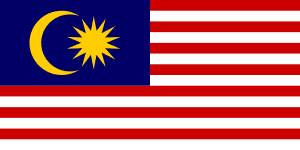- Industry
- Region
- Country / Region
On December 13, 2024, the Ministry of Communications and Technologies of the Republic of Tunisia issued an official gazette announcing a decision on the conditions for the use of Wi-Fi 6E technology on December 10, 2024, based on the opinion of the Tunisian Frequency Authority (ANF). The detailed requirements are as follows:
- Standard: EN 303 687;
- Frequency range: 5925-6425 MHz;
- Maximum radiated power: 200 mW;
- Application conditions: For indoor use only.
Click on this link to view the original Tunisian official announcement.
On December 2, 2024, the U.S. Federal Communications Commission (FCC) issued a report and order numbered FCC 24-124, which modifies the emission limits for the 24.25-24.45 GHz and 24.75-25.25 GHz bands (collectively, the 24 GHz band). The report and order were posted on the Federal Register website on December 13, 2024, and will become effective on January 13, 2025.
The rules for the 24.25-24.45 GHz and 24.75-25.25 GHz bands (collectively referred to as the 24 GHz band) were revised in the Report and Order to implement certain decisions taken by the International Telecommunication Union (ITU) at the World Radiocommunication Conference (WRC-19) in 2019. Specifically, the FCC modified the existing Part 30 to align with the limits of Resolution 750 adopted by WRC-19 to protect the passive band 23.6-24.0 GHz from interference from unnecessary emissions in the time frame after the adoption of WRC-19.
Click this link to view the original reports and orders posted on the Federal Register website.
On December 13, 2024, the FCC issued a third edition of its report and order, numbered FCC 24-125, following a press release from the U.S. Federal Communications Commission (FCC) on October 8, 2024, to open the entire 6GHz band to very low power devices (VLPs). Based on the U-NII-5 and U-NII-7 already used, the report and command will allow VLP equipment to operate in the U-NII-6 (6.425-6.525 GHz) and U-NII-8 (6.875-7.125 GHz) bands in the 6 GHz band.
Click this link to view the original FCC 24-125 report and order.
On December 11, 2024, IMDA published the IMDA CMT Technical Standard (IMDA TS CMT, standard for cellular terminals) and the IMDA CBS Technical Standard (IMDA TS CBS, standard for cellular base stations).
Click this link to view the TS CMT technical standard; Click this link to view the TS CBS technical standard.
On December 11, 2024, the US Federal Communications Commission (FCC) released an announcement numbered DA 24-1241, designating 10 Cybersecurity Labeling Administrators (CLA) for the Cybersecurity Labeling Program. The relevant CLAs are:
- CSA America Testing & Certification LLC;
- SGS North America Inc.;
- CTIA Certification LLC ;
- Telecommunications Industry Association;
- DEKRA Certification Inc. ;
- TÜV Rheinland of N.A.;
- Intertek Testing Services NA, Inc. ;
- TÜV SÜD America;
- ioXt Alliance UL LLC;
- Palindrome Technologies。
Previously, the FCC had designated UL LLC as the leading CLA in the announcement numbered DA 12-1214 released on December 4.
Click this link to view the original announcement.
On December 6, 2024, India's National Communications Security Centre (NCCS) issued a notice announcing that Optical Network Terminal (ONT) and Optical Line Terminal (OLT) products can be certified under the Voluntary Security Certification (VSC) regime until 31 March 2025. From April 1, 2025, these products must pass the ITSAR mandatory certification under the ComSec program.
Click this link can be found in the original notice.
On December 5, 2024, Egypt's National Telecommunications Regulatory Authority (NTRA) issued a press release announcing the adoption of eSIM technology in Egypt and published an eSIM user guide for the Egyptian market.
Click this link to view the original press release.
On December 5, 2024, Macao Post and Telecommunications Bureau (CTT) announced that the Macao SAR Government will stop 3G services for four mobile communication service operators after their 3G licenses expire on June 4, 2025. To ensure a smooth transition, CTT encourages users who are still using 3G services to consider upgrading to 4G and 5G services as soon as possible.
Click this link to view the original press release.
On November 29, 2024, India's National Communications Security Centre (NCCS) issued a memorandum informing that cloud-implemented IP routers and Wi-Fi CPEs will be exempt from security certification until May 31, 2025.
Click this link to view the original memorandum .
On 28 November 2024, the Malaysian Communications and Multimedia Commission (MCMC) published the Guidelines for the Use of Unmanned Aircraft Systems (UAS) Radio Spectrum. These guidelines serve as a reference for radio frequency use, technical parameters, regulatory procedures, and radiocommunication information relevant to UAS operations.
Click this link to view the original guidelines.





